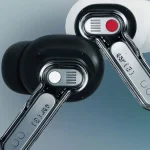King Abdullah University of Science and Technology (KAUST) has made a groundbreaking innovation by developing a gravity-driven cooling system that operates without electricity. This system is designed to cool solar panels and other semiconductor technologies efficiently.
The cooling system utilizes water extracted from the air, relying on gravity and inexpensive, readily available materials. The water produced through this cooling process can be reused for irrigation, washing, building cooling, and other applications. This achievement was led by Professor Xiao Qiang Gan and his research team, who recognize that Saudi Arabia’s abundant sunlight and significant investment in solar technology have positioned the country as a leader in renewable energy transformation.
Solar energy accounts for 80% of Saudi Arabia’s total green energy output, and cooling solar panels with water is essential for maintaining optimal temperatures. However, many conventional cooling systems require electricity, which poses challenges for implementation in rural and remote areas of the kingdom.
To prevent water droplets from adhering to the surface of the collection device, the research team discovered that applying a specialized slippery coating made from commercial polymers and silicone oil can enhance water collection using only gravity. Scientists estimate that the amount of water in the atmosphere is six times greater than the total water found in all the Earth’s rivers, making atmospheric water collection techniques viable.
Previously, KAUST researchers developed a method to enhance the performance and stability of tandem solar cells made from perovskite and silicon, achieving an efficiency of 33.7% and stability after 1,500 hours of testing, surpassing traditional solar cells.






